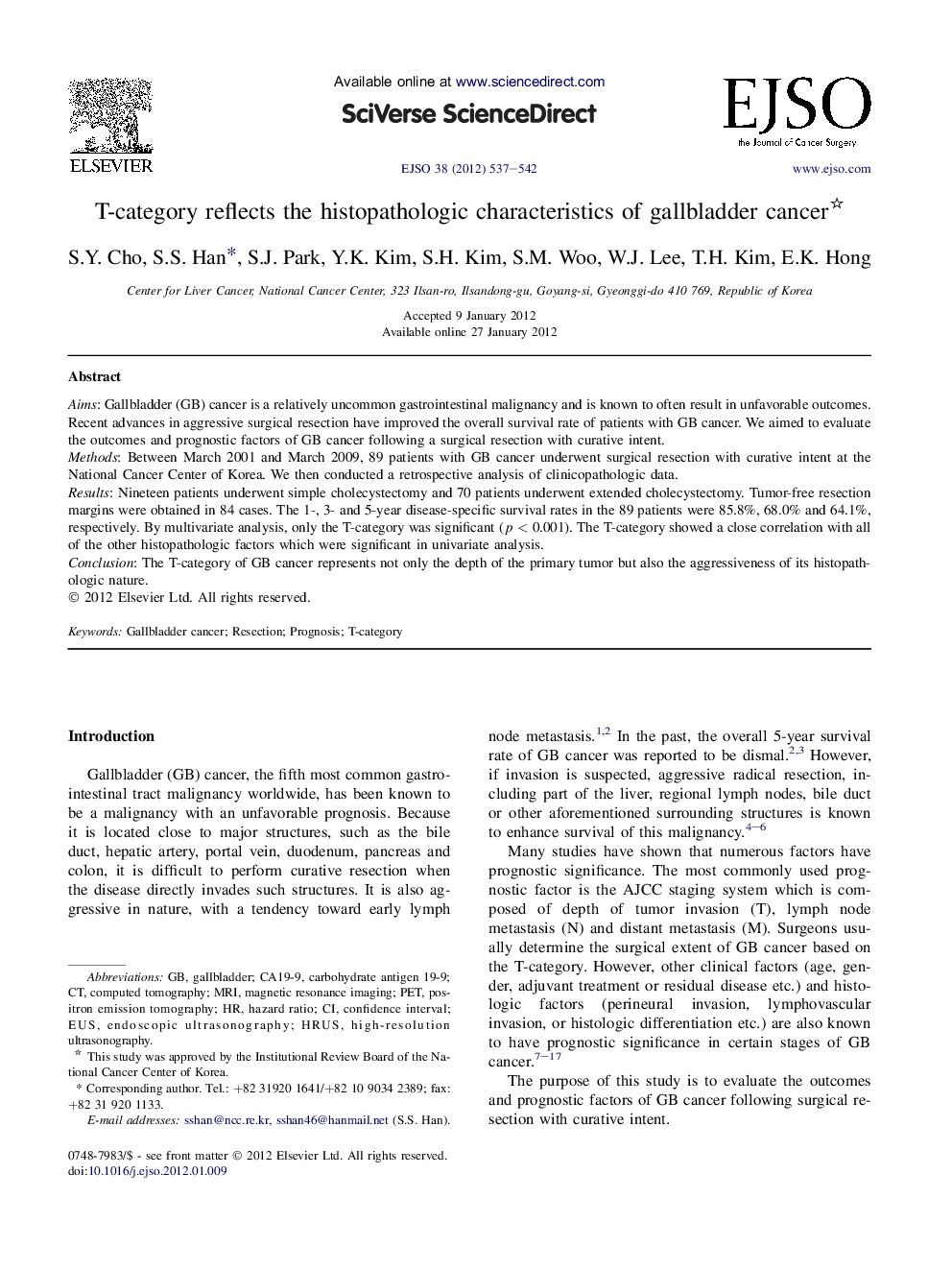| Article ID | Journal | Published Year | Pages | File Type |
|---|---|---|---|---|
| 6192208 | European Journal of Surgical Oncology (EJSO) | 2012 | 6 Pages |
AimsGallbladder (GB) cancer is a relatively uncommon gastrointestinal malignancy and is known to often result in unfavorable outcomes. Recent advances in aggressive surgical resection have improved the overall survival rate of patients with GB cancer. We aimed to evaluate the outcomes and prognostic factors of GB cancer following a surgical resection with curative intent.MethodsBetween March 2001 and March 2009, 89 patients with GB cancer underwent surgical resection with curative intent at the National Cancer Center of Korea. We then conducted a retrospective analysis of clinicopathologic data.ResultsNineteen patients underwent simple cholecystectomy and 70 patients underwent extended cholecystectomy. Tumor-free resection margins were obtained in 84 cases. The 1-, 3- and 5-year disease-specific survival rates in the 89 patients were 85.8%, 68.0% and 64.1%, respectively. By multivariate analysis, only the T-category was significant (p < 0.001). The T-category showed a close correlation with all of the other histopathologic factors which were significant in univariate analysis.ConclusionThe T-category of GB cancer represents not only the depth of the primary tumor but also the aggressiveness of its histopathologic nature.
